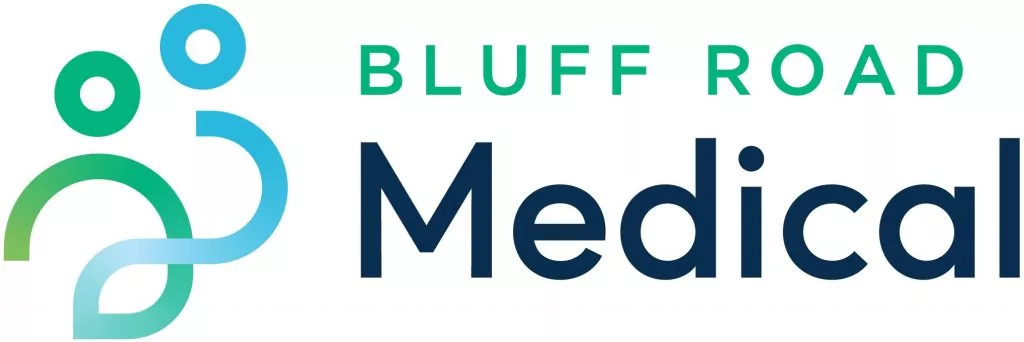Shining a light on adolescent mental health
Adolescence can be a challenging time, particularly for those faced with mental health concerns. According to Beyond Blue, evidence suggests half of all mental health conditions emerge by the age of 14, and three-quarters by the age of 24.
In this article, Bluff Road Medical Centre Clinical Psychologist Sophie Johnstone explains the conditions she commonly sees in teenagers, triggers to be mindful of, when to seek help and tips for parents.
1) What age groups do you work with?
Young people aged 12 and older, through to older adults.
2) What kinds of conditions do you see regularly in teenagers?
I usually work with young people experiencing anxiety, stress, and mood-related concerns. Within the context of these conditions, I work with young people to assist with issues like school refusal, low self-esteem, perfectionistic behaviours and traits, body image issues, interpersonal conflict, and sometimes self-harm behaviour.
3) Why is it important to be aware of mental health in teenagers?
Adolescence is a time of significant growth and change for young people across all aspects of their lives. One key developmental focus for the young person is around identity and sense of self: am I normal? who am I? and do I belong? During this time of identity exploration, there’s often a natural separation from the family unit. This increased desire for greater autonomy can change the dynamics of the family unit, and that can sometimes cause some strain for the young person and their family.
Another factor is that the brain is undergoing a lot of changes during this time. This can be helpful, as there’s often increased creativity and a desire for novelty, but on the flip side, this can make teenagers vulnerable to experiencing stress from increased emotionality and the potential for engaging in risk-taking behaviours. They’re also negotiating a lot of things – whether that be school, friendships, family, sports and hobbies, body changes, future career planning, the online world. These can be stressful at times!
4) Signs it’s time to seek help
- Increased moodiness
- Feeling restless or like you cannot relax
- Neglecting interests
- Withdrawal from friends and family
- School issues – trouble concentrating or feeling unmotivated
- Being overly critical toward yourself
- Sleeplessness or fatigue
- Changes in appetite
- Unexplained physical symptoms like stomach aches, nausea and headaches.
5) What can trigger mental health problems in teenagers?
Usually a combination of factors contribute. Examples include:
- Bullying or friendship difficulties
- School pressures
- Aspects of the online world (i.e. being unable to “shut off” from unhealthy peer dynamics)
- Family conflict
- Parental pressure (whether real or perceived)
- Biological and brain changes.
6) How can parents help minimise the stress surrounding VCE exams?
Tips:
- Help your child to strike a healthy balance by creating a study plan/schedule with them and establish appropriate times for blocks of study after factoring in family time, socialising with friends, and extra-curricular activities.
- Find the balance between offering support and providing them with space. Negotiate what this would look like together.
- Provide a space that’s conducive to study – i.e. quiet, clear desk space, with minimal distractions.
- Discuss expectations around technology use. Reach an agreement around how much technology is appropriate.
- Remind your child that exams and school are just one part of their life. Explain that their marks do not define them as a person and you love them regardless of their academic performance. Remind them that it’s about doing their best, and not comparing themselves to others.
- Encourage your child to study what they’re interested in and passionate about, not just what they think they should be doing.
- Reward and encourage them for effort, not for success.
- Keep yourself informed by being involved with the school. Go to information evenings and support your child by attending university or further education open days.
- Encourage casual chats about what your child is learning. Being interested in and talking about the subject will help your child embed the information in their memory.
- If you’re concerned and want to check in with your child, be mindful about when to do so. Keep it casual and conversational.
- Be aware of your own emotions and consider how they may influence your child.
7) Any messages for young people reading this?
Try and get the basics right first: adequate sleep, good nutrition, social time, time for fun, and stress management. Then work with the school, your parents, or your friends to set up healthy study habits, whether this be a clear and quiet study space, removal of electronics, and using a diary/planner/calendar. Work out when you study best, i.e. morning or night? On your own or in a group? Remember the recommended study blocks are between 20 and 50-minute with a 5 to 10-minute break. Keep yourself organised and accountable. Most of all, remember there is a life after VCE and you can only do your best!
There are plenty of online resources available to you. Some great examples include:
www.reachout.com (for preparing for exams and managing stress)
www.headspace.org.au/ (for mental health and wellbeing support)
www.smilingmind.com.au and the Smiling Mind app (for meditation and mindfulness tips)
www.lifeline.org.au (for crisis support and suicide prevention services)
About Bluff Road Medical Centre Clinical Psychologist Sophie Johnstone
Dr Johnstone did her training at Monash University, focusing her studies in child, adolescent and family psychology. In addition to consulting at Bluff Road Medical Centre, she works as a school psychologist and in a rehabilitation hospital. She has also spent time working in a public paediatric mental health setting.
Ready to book in with Dr Johnstone?
Dr Johnstone consults at Bluff Road Medical Centre on Wednesday afternoons. To make an appointment, please click here or phone 9598 6244.
